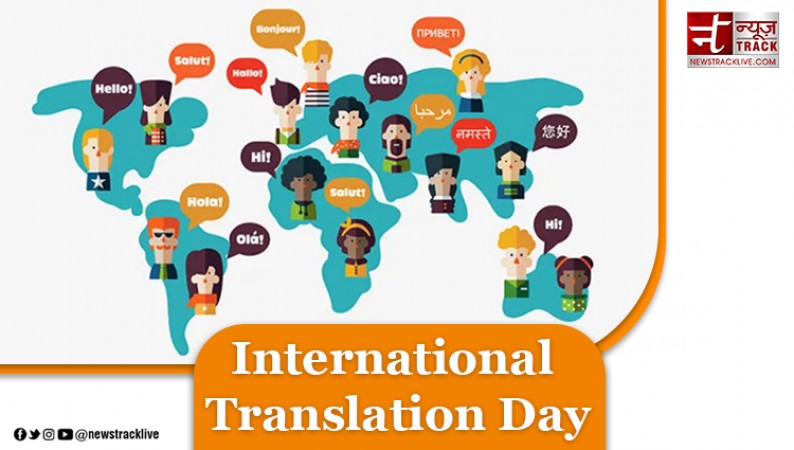
Language, the quintessential tool of human communication, serves as a bridge between individuals and nations. It is the thread that weaves the tapestry of our diverse cultures and societies. International Translation Day, celebrated annually on September 30th, is a day to pay homage to the unsung heroes who enable this vital bridge by breaking down linguistic barriers. In this article, we delve into the significance of International Translation Day, its observance, and explore the world's most translated languages.
The Significance of International Translation Day
International Translation Day holds profound significance as it acknowledges the pivotal role of language professionals in fostering connections and understanding among societies worldwide. Language is more than a mere tool for communication; it embodies the essence of a culture, its history, and its people. Translators and interpreters serve as cultural ambassadors, ensuring that the richness of one culture is accessible to another.
Bridging Linguistic Divides: Language barriers can be formidable obstacles to international relations, trade, diplomacy, and cultural exchange. Translators and interpreters step in to bridge these divides, enabling nations to communicate effectively.
Preserving Cultural Heritage: Through translation, the literary and cultural heritage of a nation can be preserved and shared with the world. Iconic works of literature, historical documents, and artistic expressions are made accessible to a global audience.
Fostering Mutual Understanding: Effective translation promotes mutual understanding, tolerance, and respect among diverse cultures. It is a means of dismantling stereotypes and prejudices, creating a world where differences are celebrated rather than feared.
Enabling Global Business: In an interconnected world, businesses operate on a global scale. Translation facilitates international trade, allowing companies to reach new markets and customers.
Observance of International Translation Day
International Translation Day is celebrated in various ways around the world. Institutions, organizations, and language professionals come together to honor this day. Here are some common observances:
Conferences and Workshops: Many institutions organize conferences and workshops where linguists, translators, and interpreters discuss industry trends, challenges, and innovations.
Awards and Recognitions: Prestigious translation awards, such as the Man Booker International Prize, recognize outstanding translations of literary works. These awards highlight the importance of translation in literature.
Cultural Events: Some countries host cultural events, including book readings, film screenings, and art exhibitions, to showcase the diversity of translated works.
Online Campaigns: Social media campaigns and webinars are used to spread awareness about the significance of translation and the role of language professionals.
Translation Competitions: Universities and language institutes often organize translation competitions to encourage young talent in the field.
World's Most Translated Languages
The world is home to thousands of languages, each with its unique characteristics and nuances. While English, Spanish, and Mandarin Chinese are among the most widely spoken languages, it's important to note that translation involves more than just the number of speakers. Here are some of the world's most translated languages, based on their global influence and cultural significance:
English: English is undoubtedly one of the most translated languages globally. It serves as the lingua franca in many fields, including business, science, and entertainment.
Spanish: With a rich literary tradition and as the official language in 20 countries, Spanish is a widely translated language. The works of authors like Gabriel García Márquez and Pablo Neruda have been celebrated globally.
French: French is renowned for its contributions to literature, philosophy, and the arts. Works by authors like Victor Hugo and Albert Camus continue to be translated and cherished.
Arabic: Arabic, with its deep cultural roots and significance in the Islamic world, has a substantial presence in translated literature, religious texts, and scholarly works.
German: German has made significant contributions to philosophy, science, and literature. The works of thinkers like Karl Marx and Friedrich Nietzsche have been translated into numerous languages.
Russian: Russian literature, with classics from authors like Leo Tolstoy and Fyodor Dostoevsky, enjoys a wide readership worldwide.
Chinese (Mandarin): As China's global influence grows, Mandarin Chinese has become a prominent language in international business and diplomacy.
Japanese: Japan's unique culture, art, and technology have driven the translation of Japanese texts, manga, and video games into various languages.
Italian: Italian's cultural contributions, especially in the realms of art, music, and literature, ensure its continued presence in translation.
Portuguese: Portuguese is celebrated through the works of writers like Fernando Pessoa and José Saramago and is gaining prominence in global literature.
In conclusion, International Translation Day serves as a reminder of the vital role language professionals play in fostering understanding and cooperation among the world's diverse cultures. Translation transcends words; it is a bridge that connects hearts and minds across borders. As we celebrate this day, let us appreciate the tireless efforts of translators and interpreters who enrich our lives by bringing the world closer together, one word at a time.